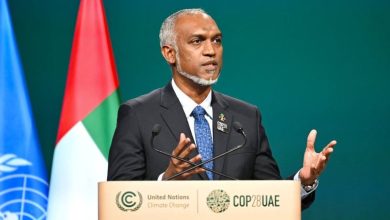As security measures spread to neighboring nations, ten million children in central Sahel are in extreme danger
Abdur Rahman Khan
A UNICEF child alert issued today states that nearly 4 million children are at risk in neighboring countries as hostilities between armed groups and national security forces spill across borders. Ten million children in Burkina Faso, Mali, and Niger are in dire need of humanitarian assistance, which is twice as many as it was in 2020.
Marie-Pierre Poirier, UNICEF Regional Director for West and Central Africa, stated, “Children are increasingly caught up in the armed conflict, as victims of intensifying military clashes or targeted by non-state armed groups.” In the central Sahel, the year 2022 was particularly violent for children. All gatherings to the contention need to earnestly stop assaults both on youngsters, and their schools, wellbeing focuses, and homes.”
UN statistics show that three times as many children were confirmed killed in Burkina Faso in the first nine months of 2022 as in the same time period in 2021. A large portion of the kids passed on from discharge wounds during assaults on their towns or because of ad libbed touchy gadgets or unstable leftovers of war.
The brutality of the armed conflict is getting worse. Blockading towns and villages and sabotaging water networks are two of the strategies used by some of the armed groups that operate in large parts of Mali, Burkina Faso, and, increasingly, Niger. Recent projections indicate that by June 2023, more than 20,000 people living along the border between Burkina Faso, Mali, and Niger will be experiencing food insecurity of the “catastrophe” level.
Opposition to state-run education is opposed by armed groups that regularly burn and loot schools and threaten, kidnap, or kill teachers. In the three countries, over 8,300 schools have closed because they were directly targeted, teachers have fled, or parents have been displaced or are too afraid to send their children to school. More than 1 out of 5 schools in Burkina Faso have shut and 30 percent of schools in Niger’s Tillaberi district are at this point not practical because of the contention.
In the northern border regions of Benin, Cote d’Ivoire, Ghana, and Togo, where children have extremely limited access to essential services and protection, hostilities are spilling over from the central Sahel. These remote communities have limited infrastructure and resources.
In 2022, at least 172 violent incidents, including armed group attacks, were reported in the four countries’ northern border regions. A regional monitoring network says that up to 16% of the population in Benin, the country that has been hardest hit, is thought to be at risk. By the end of 2022, nine schools in the northern regions of Benin and Togo had either been closed or were no longer operational due to insecurity.
One of the most affected regions on the planet by climate change is where the crisis is taking place. The Sahel region is experiencing temperatures rise 1.5 times faster than the global average. Floods result in lower crop yields and contamination of scarce water supplies as precipitation becomes more erratic and intense. Niger, which ranks seventh globally on the UNICEF Children’s Climate Risk Index, experienced the worst flooding in years in 2022 and damaged or destroyed 38,000 homes.
The central Sahel crisis continues to be chronically and critically underfunded: UNICEF only received one third of the $391 million it requested for the Central Sahel in 2022. In order to support our humanitarian efforts in the central Sahel and neighboring coastal nations in 2023, UNICEF has issued an appeal for $473,8 million.
Marie-Pierre Poirier, UNICEF Regional Director for West and Central Africa, stated, “The scale of the crisis in the central Sahel and, increasingly, in neighbouring coastal countries urgently requires a stronger humanitarian response as well as long-term flexible investment in resilient essential social services that will help consolidate social cohesion, sustainable development, and a better future for children.”
To address the undeniably desperate danger to youngsters in the focal Sahel, UNICEF is encouraging:
Legislatures across the focal Sahel and impacted beach front nations, alongside specialized and monetary accomplices, to altogether increase interest in growing admittance to fundamental social administrations and insurance, as key pathways to harmony and security. This expansion ought to concentrate on strengthening and assisting the local systems, networks, and workforces that are the first responders to emergencies and are able to consistently reach children, particularly in communities that are difficult to reach.
Under international humanitarian and human rights law, all parties to the conflict must fulfill their fundamental moral and legal obligations toward children. This includes putting an end to attacks against children and the services they use; preserving humanitarian access and space; putting in place specific procedures for treating children who have been affected by the armed conflict; and working diligently with the United Nations to develop specific plans for putting an end to serious violations against children.





